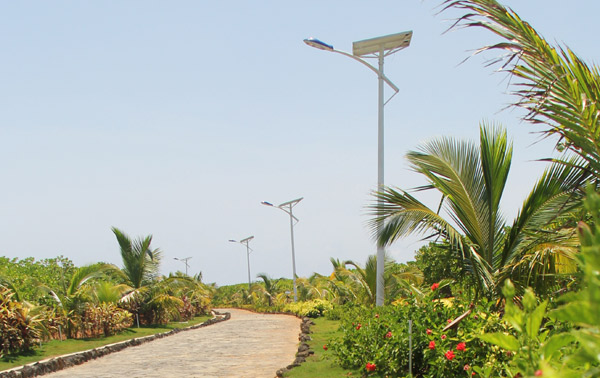Nation takes lead in ecological effort
Editor's Note: China Daily is running a series of articles on the South China Sea covering a range of topics that provide fascinating insights into what life is like on islands in that area. Today, our reporters examine China's efforts to protect the environment and ecological systems, including recycling.
China has dedicated "an incomparable amount of research, effort and funds" to protecting the South China Sea's vulnerable ecological system, a leading ocean ecology expert said on Tuesday.
Chen Chang, who leads an observation and research station focusing on the deep waters off the Xisha and Nansha islands, also voiced regret about the lack of effort by other countries to preserve and protect the fragile coral reefs in the areas they occupy.
Some in the region have been more concerned about exploiting the vast oil and gas resources under the sea while ignoring the ecological situation.
Chen said that more than 95 percent of the islands and reefs in the South China Sea were composed of coral that has been damaged because of "global warming and excessive fishing".
Underwater ecosystems thrive on coral reefs, which provide sustenance for about 25 percent of all marine species globally, yet they account for less than 0.1 percent of the ocean surface.
Chen warned that fishermen from some countries in the region were involved in unregulated and uncontrolled fishing. He didn't mention a country by name.
"They often fish by poisoning the water or detonating explosives, which is destructive to the coral reefs in the fisheries," Chen said.
Chen's station, which operates under the South China Sea Institute of Oceanology of the Chinese Academy of Sciences, has tracked and studied ecological systems in the sea and the coral reefs since the 1990s and has accumulated a massive trove of data.
"The key to rebuilding ecological systems for the reefs in the Xisha Islands is bringing back the species needed and the environment required," Chen said.
"We are working on a plan to build a pasture of oceanic ecology based on coral reefs. Measures include assigning sample areas, placing artificial reefs to accommodate the regeneration of the coral and boosting the reproduction of fish and shellfish."
As part of China's increased investment in the ecological buildup, the Ministry of Science and Technology invested 19 million yuan ($2.9 million) in 2009 in a research program examining the reproduction and recovery of biological resources in the ocean.
And in 2014, Sansha - China's southernmost municipality, which governs the South China Sea islands - dedicated 10 million yuan in the first batch of capital aimed at helping Chinese fishermen start new businesses.
"We are proud to say that China's understanding of the coral reefs in the South China Sea-the result of its scientific research and dedicated budgets - is beyond compare," Chen said.
The Sansha government is also supporting fishermen in new ventures, including the opening of restaurants and inns on the islands.
Luo Haiyun, chief of the Sansha branch of Industrial and Commercial Bank of China, said the number of point-of-sale machines installed at restaurants run by fishermen has been increasing since 2013, a clear sign that business is booming.
"I suggest more favorable policies for the island dwellers and fishermen, encouraging them to shift to recreational fishing and tourism," Chen said. Contact the writers at [email protected]
Lawns stay green with recycled water
Fresh water is precious on the remote islands of the South China Sea, so it may be surprising to learn that it's used to water the grass on Yongxing Island.
"Currently we process at most 200 tons of wastewater per day. Our largest daily capacity is 1,800 tons," said Pan Gao, the staff member in charge of water recycling at the treatment plant.
Yongxing, home to China's southernmost city Sansha accommodates a range of services, including schools, shops, restaurants and banks, along with residents from all walks of life who produce daily waste.
Pan, 27, expressed confidence that the treatment plant "still has a lot of potential to be tapped" because the total amount of wastewater collected is deliberately limited, partly because the island's population is small.
Most wastewater on Yongxing is recycled, and Pan said the plant produces 120 to 150 tons of usable water each day. "In order to protect the environment, the island has stopped tapping underground water," he said. "Given the scanty amount of usable water here, most recycled water is used for irrigation, including the lawns in front of the municipal government building, and for industrial purposes."
Xiao Jie, Sansha's mayor, said the island has eliminated all extraction of underground water as of the end of last year, and more than 30 wells have been sealed
The city, which was established in 2012, has built a water desalination plant with a daily capacity of 1,000 tons, he said. "The city has brought about greater care for the ocean's ecology and environment," Xiao said. "It is our duty to make the sky cleaner, the islands greener and the seawater clearer."
|
Streetlights powered by solar panels have been installed on Zhaoshu Island in the Xisha Islands. |

























